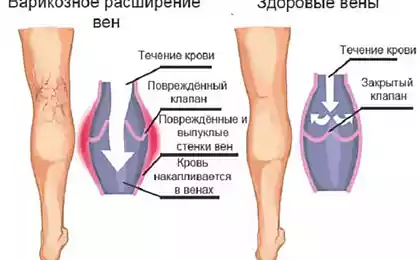420
You micromanager: 5 symptoms and methods of treatment
If you manage people, find a middle ground between intervention and autonomy is very difficult. You want, that people understood everything and did everything correctly, right?
But more harm than good, the author writes Fast Company's Gwen Moran. The survey recruitment company Accountemps found that nearly 60% of workers in a particular point in time had the chief of micromanager, and it undermined their morale (68%) and harm performance (55%).
Sometimes it is difficult to recognize the inclination, said mark Prine, Director of HR consulting company Taylor Strategy Partners. And most bosses are so well-intentioned — they want the job done as good as possible. But keeping employees on a short leash means not to allow them to grow, to develop their abilities, and this leads to suppression of their initiative and job satisfaction.

There are some symptoms of micromanagement, which can be detected in normal everyday conversations. If you notice that I regularly say these words, perhaps you micromanager.
"Just checking in" or "Let me see"When you hover over the employees, at least in the messenger, though by mail, at least in the form of personal checks, a clear sign of micro-management, says consultant on leadership Jeffrey Magee. Perhaps you simply want to be available for employees to demonstrate a willingness to answer questions and give feedback. But people are often left with the impression that you don't trust how they do their work. If you are working decent people, if you are normally well-established processes, there is a reasonable training program to give employees the room to maneuver. And if not, the urgent need is to establish.
"It's faster if I do it"In the trap often find themselves aspiring leaders, says Prine. Of course, the first time the work will be done faster if you take it for yourself. But how much time you lose in the future, if you do not teach people to do it and not delegate the task to them?
"Many people don't realize that if you explain the problem several times and apply some effort right now, then you might as well say: "Forward,"" says Prine. This allows you to better arrange your time and shows employees that you trust his abilities.
"Run with me"Sometimes it really is important to see the report or the result of work before it will show an external audience. but often it is just an additional level of administrative red tape, without which it is possible to do, says co-founder of the consulting company The Leadership Circle bill Adams. If you decide to approve everything that produce your subordinates will undermine the performance of the company.
Sometimes this behavior stems from the desire of a Manager to demonstrate that he knows everything. "Managers often believe that their main skill is to have answers to all questions, solve all problems, to perform much of the work themselves. Some don't realize that their main task is to accomplish the work from others," says Adams.
"Why don't you do it like this?"Sometimes when you work with very important data or content — it is important to follow specific procedure. But in most cases the specific order and the process is irrelevant: the only important end product, says Adams. If you are starting to correct people who are doing a good job, just because you don't like their approach, it is worth considering why you do it and is it worth it to continue.
Because the more you apply, the less working be the employees, Adams says. This is an unsustainable situation. Besides, you don't allow people to come up with new, more efficient ways of solving problems — and isn't that why you hired them?
"I"Sometimes the employees have problems with solving business problems especially if it something new for them. This spectacle is painful, but it is an important part of the workflow and important working tool, says co-founder of Managing People Better Do the washing. And when the Manager intervenes to complete the project, not allowing employees to develop to the end, this is a dangerous precedent — people feel inadequate, even humiliated.
"Micromanagement stems from a desire to control, and in our experience, micro-managers often fail to recognize these tendencies, says stir. Or do they just grin, or begin to justify these aspirations, for example, the fact that they quality of work is fundamentally important." This is the wrong approach: help employees to reach the finish line and not push them out of the race.published
P. S. And remember, just changing your mind — together we change the world! ©
Join us in Facebook , Vkontakte, Odnoklassniki
Source: ideanomics.ru/?p=5000
But more harm than good, the author writes Fast Company's Gwen Moran. The survey recruitment company Accountemps found that nearly 60% of workers in a particular point in time had the chief of micromanager, and it undermined their morale (68%) and harm performance (55%).
Sometimes it is difficult to recognize the inclination, said mark Prine, Director of HR consulting company Taylor Strategy Partners. And most bosses are so well-intentioned — they want the job done as good as possible. But keeping employees on a short leash means not to allow them to grow, to develop their abilities, and this leads to suppression of their initiative and job satisfaction.

There are some symptoms of micromanagement, which can be detected in normal everyday conversations. If you notice that I regularly say these words, perhaps you micromanager.
"Just checking in" or "Let me see"When you hover over the employees, at least in the messenger, though by mail, at least in the form of personal checks, a clear sign of micro-management, says consultant on leadership Jeffrey Magee. Perhaps you simply want to be available for employees to demonstrate a willingness to answer questions and give feedback. But people are often left with the impression that you don't trust how they do their work. If you are working decent people, if you are normally well-established processes, there is a reasonable training program to give employees the room to maneuver. And if not, the urgent need is to establish.
"It's faster if I do it"In the trap often find themselves aspiring leaders, says Prine. Of course, the first time the work will be done faster if you take it for yourself. But how much time you lose in the future, if you do not teach people to do it and not delegate the task to them?
"Many people don't realize that if you explain the problem several times and apply some effort right now, then you might as well say: "Forward,"" says Prine. This allows you to better arrange your time and shows employees that you trust his abilities.
"Run with me"Sometimes it really is important to see the report or the result of work before it will show an external audience. but often it is just an additional level of administrative red tape, without which it is possible to do, says co-founder of the consulting company The Leadership Circle bill Adams. If you decide to approve everything that produce your subordinates will undermine the performance of the company.
Sometimes this behavior stems from the desire of a Manager to demonstrate that he knows everything. "Managers often believe that their main skill is to have answers to all questions, solve all problems, to perform much of the work themselves. Some don't realize that their main task is to accomplish the work from others," says Adams.
"Why don't you do it like this?"Sometimes when you work with very important data or content — it is important to follow specific procedure. But in most cases the specific order and the process is irrelevant: the only important end product, says Adams. If you are starting to correct people who are doing a good job, just because you don't like their approach, it is worth considering why you do it and is it worth it to continue.
Because the more you apply, the less working be the employees, Adams says. This is an unsustainable situation. Besides, you don't allow people to come up with new, more efficient ways of solving problems — and isn't that why you hired them?
"I"Sometimes the employees have problems with solving business problems especially if it something new for them. This spectacle is painful, but it is an important part of the workflow and important working tool, says co-founder of Managing People Better Do the washing. And when the Manager intervenes to complete the project, not allowing employees to develop to the end, this is a dangerous precedent — people feel inadequate, even humiliated.
"Micromanagement stems from a desire to control, and in our experience, micro-managers often fail to recognize these tendencies, says stir. Or do they just grin, or begin to justify these aspirations, for example, the fact that they quality of work is fundamentally important." This is the wrong approach: help employees to reach the finish line and not push them out of the race.published
P. S. And remember, just changing your mind — together we change the world! ©
Join us in Facebook , Vkontakte, Odnoklassniki
Source: ideanomics.ru/?p=5000





















